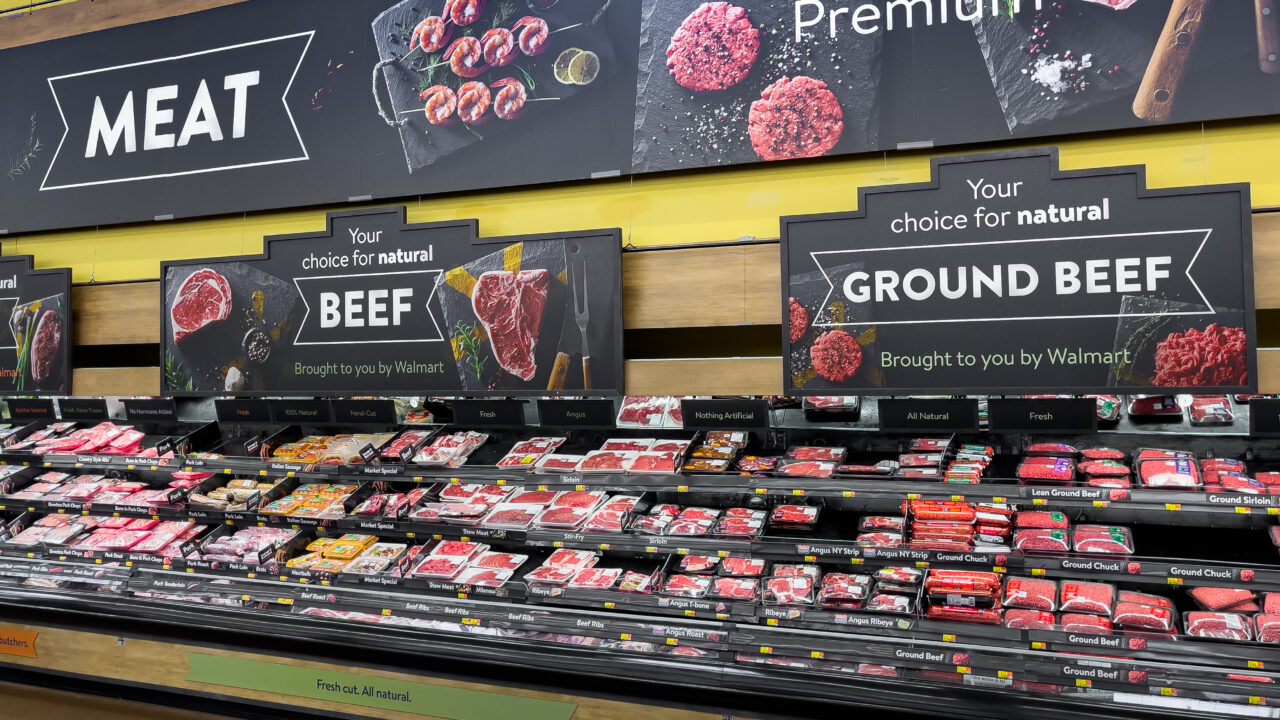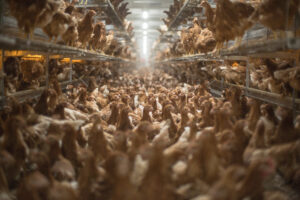Inside the Meat Industry Campaign to Discourage Plant-Based Diets
Meat and dairy groups have paid for advertisements that cast meat-based alternatives as unhealthy, unnatural and ultra processed. Image: Adobe
Image: Adobe
The agriculture sector has spent millions of dollars on discrediting plant-based diets, a new report has claimed.
The report, published by the consumer advocacy organisation Freedom Food Alliance on Thursday (29 February), found that multinational meat companies and lobby groups were using industry-funded research, public ad campaigns and educational materials to sway public opinion on meat and dairy.
The Disinformation Report: Harvesting Denial, Distractions & Deception suggests that the industry is sidestepping accountability for its role in greenhouse emissions. By denying, derailing, delaying, and deflecting meaningful discussions around the sector’s key issues, the agriculture industry is using the same tactics as the tobacco and fossil fuel lobbies.
“Animal agriculture giants are waging a disinformation war, threatening public health and the planet.”
The report outlines coordinated social media attacks on nutritional science, and the portrayal of the industry as targets of “anti-meat militancy.”
Livestock accounts for more than 14 percent of all global emissions, with meat making up nearly 60 percent of all greenhouse gases from food production. Experts say that major cuts to meat and dairy consumption – particularly in wealthy nations – are essential to meet international climate goals.
“Animal agriculture giants are waging a disinformation war, threatening public health and the planet,” said Nicholas Carter, the report’s lead researcher.
“We call for robust legislation, an end to greenwashing, and strict accountability for these major polluters.”
Misleading Ads
The report pointed to widespread advertising campaigns that downplay the impacts of the animal agriculture industry.
JBS, the world’s largest meat conglomerate, widely advertised its pledge to reach net zero by 2040 – including in full screen online commercials in the Washington Post. A report by the Institute for Agriculture and Trade Policy (IATP), a nonprofit advocacy organisation, claimed the Brazilian company’s targets omit around 90 percent of all their emissions, including those from deforestation to create pastures and feed for livestock. (In a response, JBS said that the report used “flawed methodology and grossly extrapolated data to make misleading claims”.)
The livestock industry is also making an effort to target young people, researchers said.
In the U.S. and Canada, companies are providing free educational materials and support to schools, while in low-dairy consuming countries in Southeast Asia the #UndeniablyDairy campaign is partnering with influencers on TikTok.
Such marketing has not only focused on making meat seem climate-friendly but has also worked to demonise plant-based alternatives, the report found.
In January, DeSmog revealed that a meat-funded government body in the UK – the Agriculture and Horticulture Development Board – launched an ad campaign targeting Gen Z during Veganuary, which was expected to reach 9 out of 10 adults in the country. Experts said the promotion was misleading and ignored the global warming impact of UK diets.
Such marketing has not only focused on making meat seem climate-friendly but has also worked to demonise plant-based alternatives, the report found. Meat and dairy groups have funded adverts to make vegan products seem unhealthy, unnatural and ultra processed.
One example is a $5 million commercial from 2020 in the U.S., in which a child competing in a spelling bee contest has to spell “methylcellulose.”
“Fake bacon and burgers can have dozens of chemical ingredients. If you can’t spell it or pronounce it, maybe you shouldn’t be eating it,” a voiceover in the ad says. Methylcellulose is made from plant-based fibres and is also an ingredient in products like bread and chocolate.
The advert was produced by CleanFoodFacts.com, a site run by the Center for Organization Research and Education (CORE) – a network established by veteran industry lobbyist Richard Berman.
Funding Experts
The report finds that the industry’s funding of experts and academic institutions helps to greenwash meat and dairy products, thereby blocking the take-up of plant-based alternatives.
A separate academic paper, published in Climatic Change this week, analysed the role of industry-funded academia in obstructing “unfavorable policies” and influencing climate change policy and discourse.
Both reports point to the Clarity and Leadership for Environmental Awareness and Research (CLEAR) Center at University California Davis in the U.S., which was funded by a $2.9 million grant from IFeeder, the non-profit arm of a livestock industry group. U.S. members of IFeeder include meat giants Cargill and Tyson, as well as a subsidiary of JBS.
Frank Mitloehner, the centre’s director, has previously pushed the widely-contested idea that meat and dairy can be “climate neutral” and defended the industry in multiple public forums.
The report finds that the industry’s funding of experts and academic institutions helps to greenwash meat and dairy products, thereby blocking the take-up of plant-based alternatives.
Between 2002 and 2021 Mitloehner and the CLEAR Center received close to $12.5 million in funding from industry groups, including the National Cattlemen’s Beef Association and the National Pork Board.
The report states that the CLEAR Center has not only conducted research supporting current animal agriculture practices; it has also actively undermined research presenting unfavourable findings to the industry.
In 2019, the institute coordinated efforts to discredit the Eat-Lancet report – a landmark study from 37 nutrition, environmental and farming experts, which recommended halving meat and dairy production.
The CLEAR Centre led the #yes2meat social media campaign, which according to The Lancet, “resulted in the wide distribution of critical (and at times defamatory) articles on alternative media platforms”.
Influencing Opinion
Pro-meat and dairy PR campaigns appear to be working. Last year, a survey revealed that over 40 percent of the U.S. public believe that beef is better for the environment than plant-based alternatives, while only 34 percent believe the opposite is true.
In reality, plant-based substitutes have on average around half the climate impacts of meat options.
Freedom Food Alliance advocates for “a multi-pronged approach” to tackle misinformation campaigns that obstruct efforts to reduce emissions from animal agriculture.
“We must engage in a collective effort to demand transparency, regulation, and transformational, yet just, changes away from the animal agriculture industry.”
Major changes in law, education and academic institutions could strengthen media and scientific literacy and promote transparency around emissions.
More specifically, the report calls for academic institutions to divest from animal agriculture research money and to disclose conflicts of interest.
Governments must also explore new legislation to tackle greenwashing, the report advises, such as banning misleading “climate neutral” claims. Technology can also help develop systems for identifying and flagging disinformation, and to amplify credible peer-reviewed research.
“We must engage in a collective effort to demand transparency, regulation, and transformational, yet just, changes away from the animal agriculture industry,” Carter concludes.
“It is crucial that we take action to address this misinformation and its potentially devastating consequences on our environment, health, and food security.”
Your support matters…Independent journalism is under threat and overshadowed by heavily funded mainstream media.
You can help level the playing field. Become a member.
Your tax-deductible contribution keeps us digging beneath the headlines to give you thought-provoking, investigative reporting and analysis that unearths what's really happening- without compromise.
Give today to support our courageous, independent journalists.






You need to be a supporter to comment.
There are currently no responses to this article.
Be the first to respond.